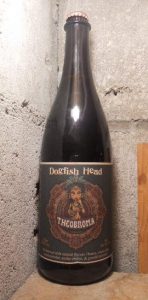Interesting if light-ish article from the publication The Drinks Business on the question of labeling beer with their caloric content:
According to public health minister Anna Soubry, officials have been in talks with the drinks industry about the possible inclusion of calorie content on labels. Ministers are hoping that displaying the calorie content in beers, wines and spirits could encourage those who are watching their weight to drink less. Most manufacturers already include information on units of alcohol on labels in a voluntary agreement with the Government. A recent study by the Drink Aware Trust has linked the large amount of calories in alcoholic drinks to people being overweight and obese.
Makes perfect sense to me. Every box of crackers in the cupboard tells me how many calories are in a handful already. I can look up the calories in meats and other ingredients because they are fairly standard measure as these things go. But a beer is not a beer is not a beer. Who knows what people are sticking in there and what it means over the long term? Some of the big bombs out there might as well be mugs of piping hot icing and should be handled with great care. And the drive to have more proper sessionable low alcohol beers might get a kick if the truth about stronger stuff were wildly known. Makes sense.
And why stop there? One thing that drives me a bit nutty are abstract standards like the UK’s absolutely silly use of “units” as a measure of alcoholic strength. What we need on a bottle is the actual ml of pure alcohol. A 500 ml can of 7% of semi-DIPA has 35 ml. Two of these innocent pals are well within the ball park of a 750 ml corked top bottle of that swell 10% beer but far less, err, red flaggy. Is it too much to ask for a universal standard based on a standard that is basically universal?
Is there pressure to keep this sort of information away from the beer buying public? Or do you actually just not want to know. Are they, like price, things of no interest to the… umm… passionate?


